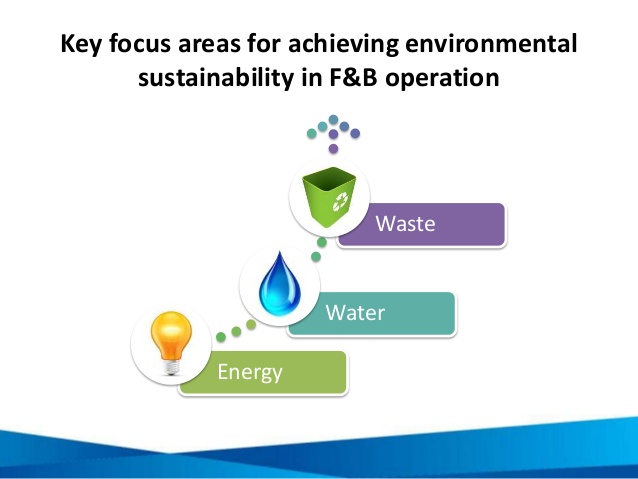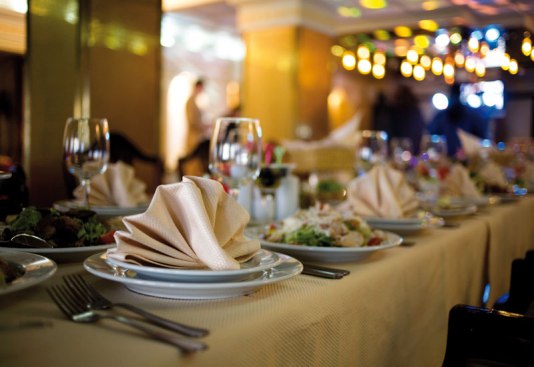What is sustainability in F&B?
Sustainability in F&B means that while these businesses are enhancing and optimizing their operations, they are also able to protect the environment. This can mostly done by controlling the energy efficiency and carbon footprint of their operations, as it helps with climate change and resource scarcity.
Most F&B companies have actually already began engaging in sustainability measures, whether it’s to cut down waste or reduce certain aspects of their production energy..etc. This can all be viewed in their annual CSR Reports. The CSR (Corporate Social Responsibility) Reports measures certain compliance standards as well as the way the company handles its employees and other stakeholders, along with creating a positive impact on the environment.
What are some of the Practiced Examples of different F&B Businesses?
 [2]
[2]
Going sustainable can be a relatively a win-win situation for some of the F&B service providers, based on their target customers. This is because the society is generally moving towards more healthier options, where citizens are concerned about their health, weight…etc, thus leading them to spend more on healthier options compared to other fast-food and non-healthy items.
In terms of the service provider, providing certain types of healthier options and reducing the sales of some particular items can reduce carbon footprint. For example, selling more vegetarian options, which are healthy and fresh and reducing the sales of products like Beef which takes up a lot fossil fuel that in turn harms the environment.
Besides this, there are several other areas that are normally looked into when planning to go sustainable. These include, energy from the lighting, refrigerators, HVAC..etc. Thus, another way F&B can become more sustainable is to control their heat loss and instead insert more windows that can naturally control the ventilation if space and area permits.
Another way, adopted by Kraft food, would be to have an all-electric transport refridgeration unit. This is especially useful for food that has to be transported over long hours and still needs to maintain a certain temperature. Often vehicles need to keep their engines on to cater for these food items. However with the all-electric refrigerator, they can simply switch off their engines and the food will still be taken care of.
Another example by Starbucks would be to reach out to their local farmers, to ensure that 100% of their coffee beans are coming from ethically sustainable farming. This ensures that their coffee beans are natural and also their farmers aren’t being scammed during the process.
To add on, here is a list of examples from Hotel Pedling in Butan on how they adopt sustainability measures. They mainly;
- utilize recyclable napkins for the guests
- use more local products for their meals e.g. fruits, meat.. etc. to avoid the transportation carbon footprint
- donate leftovers to shelters
- eliminate disposable items
- avoid bottled water
- see if any oil/grease can be recyclable
Personal Sharing
Throughout this research, it was quite interesting to know how different companies are trying to adopt sustainable measures within their operations. However, the most interesting sustainable measure I saw would be the one we saw in class, in relation to the wine operations, where everything is tracked through the system. I never imagined systems like that even existed. That way they could actually reduce wastage and keep track of everything.
References
[1] http://www.hoteliermiddleeast.com/pictures/hotelsfb.jpg
[2] http://www.slideshare.net/duanesrt/rt-trainer-guide-unit-11en-160414
[3] http://www.slideshare.net/garloyd/sustainable-and-organic-fb
[4] http://www.environmentalleader.com/2010/01/06/best-practices-in-sustainability-at-foodservice/
[5] http://www.theguardian.com/sustainable-business/blog/best-practices-sustainability-us-corporations-ceres
[6] http://www.hotelpedling.com/green-initiatives/pedling-green-initiatives/implement-sustainable-food-beverage-practices/
